Fine motor skills development Letter Recognition Worksheets for Ages 3-8
5 filtered results
-
From - To
Boost your child’s fine motor skills and letter recognition with our expertly designed worksheets for ages 3-8! Each sheet combines fun activities like tracing, coloring, and pattern copying to enhance precision and control in little hands. Perfectly crafted to develop proper pencil grip, hand-eye coordination, and foundational writing skills, our engaging worksheets ensure your young learner gains confidence with every letter. Ideal for early learners, these resources transform learning into an exciting adventure, setting the stage for success in reading and writing. Start building essential skills today with our captivating fine motor development tools!
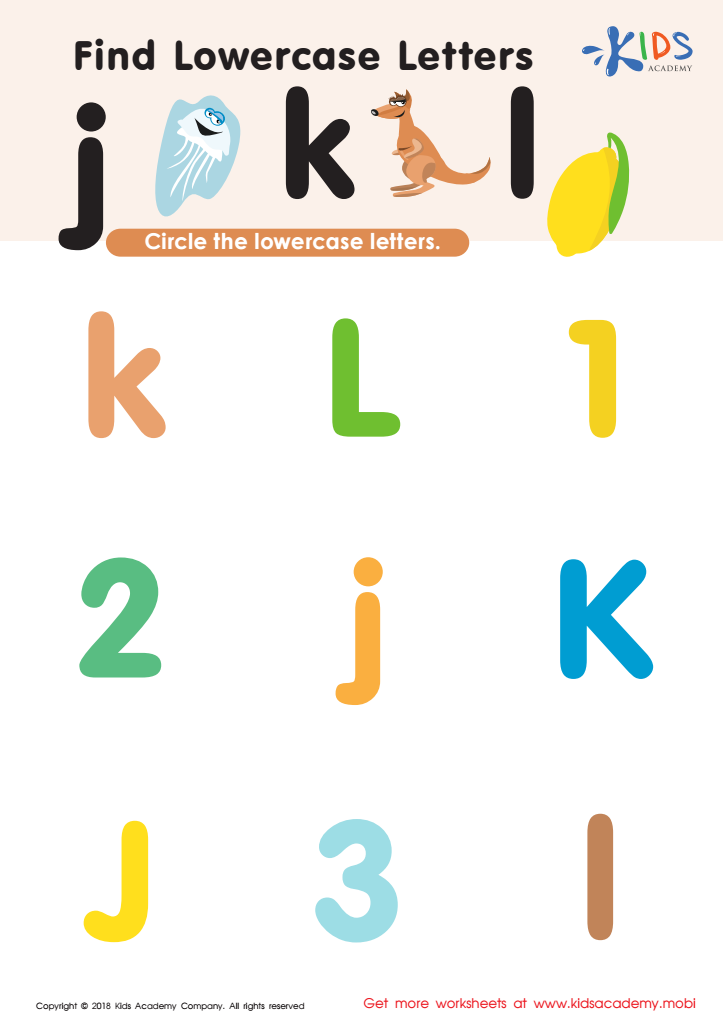

Find Lowercase Letters j k l Worksheet
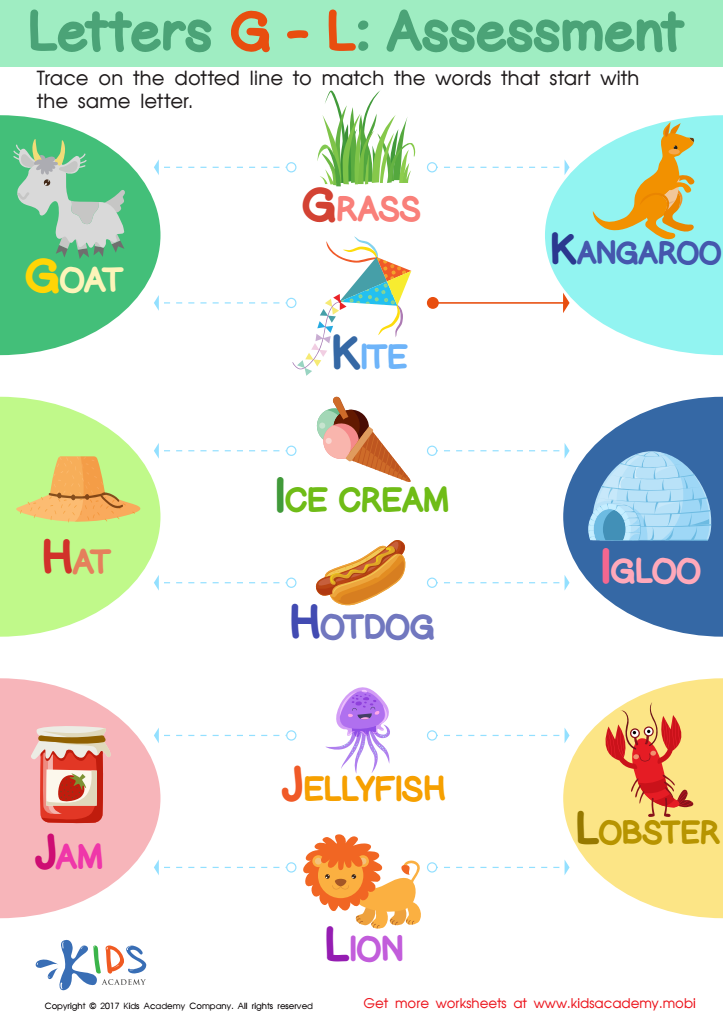

Letters G-L Worksheet
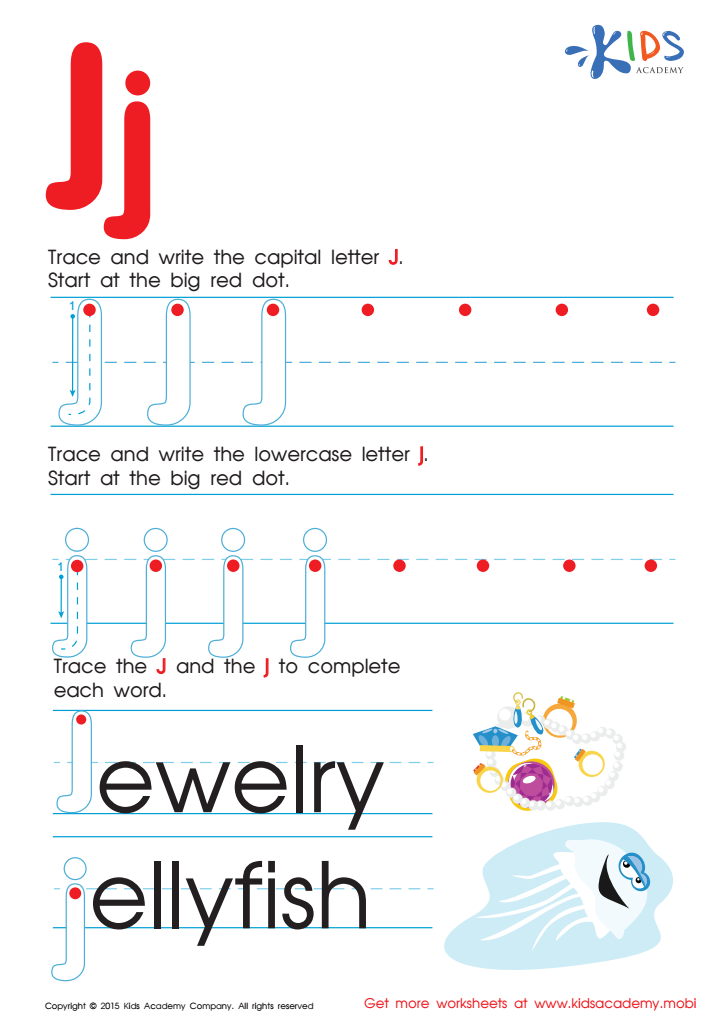

Letter J Tracing Page
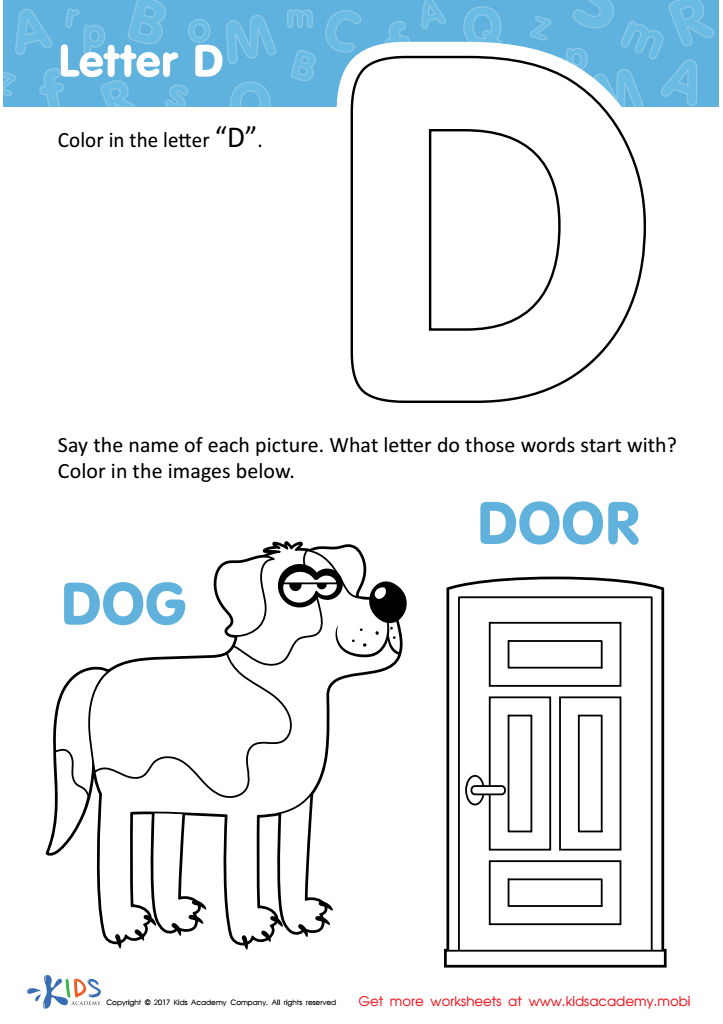

Letter D Coloring Sheet
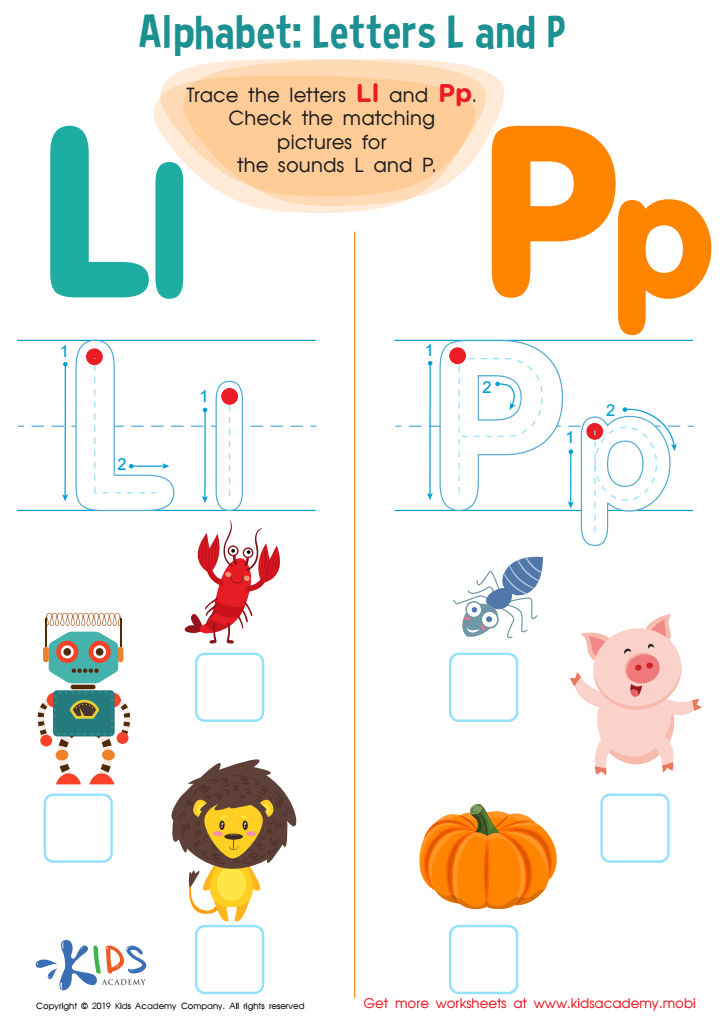

Letter L and P Tracing Worksheet
Fine motor skills and letter recognition are foundational aspects of early childhood development that significantly impact a child's academic and overall life success. Fine motor skills, the coordination of small muscles in movements, primarily involving the synchronization of hands and fingers with the eyes, are crucial for performing everyday tasks like writing, buttoning, and using scissors. For children aged 3-8, these skills are particularly pertinent as they prepare for and enter school, where writing and other tasks requiring precision become part of daily routines.
Letter recognition, the ability to identify and name letters, is a precursor to learning to read and write. Mastery of this skill enables children to make sense of written language, facilitating reading fluency and comprehension. Children who struggle with letter recognition may face challenges in decoding words, which can hinder their ability to read proficiently and enjoy the process of learning.
Integrating activities that develop fine motor skills—such as drawing, playing with clay, and cutting with scissors—with letter recognition exercises, like alphabet puzzles and tracing, can make learning more engaging and effective. By placing a strong emphasis on these skills, parents and teachers help children build the foundation for literacy, fostering self-confidence and a positive attitude toward school and learning in general. Investing time and effort in these early years is critical for setting children on the path to lifelong academic and personal success.
 Assign to My Students
Assign to My Students




















